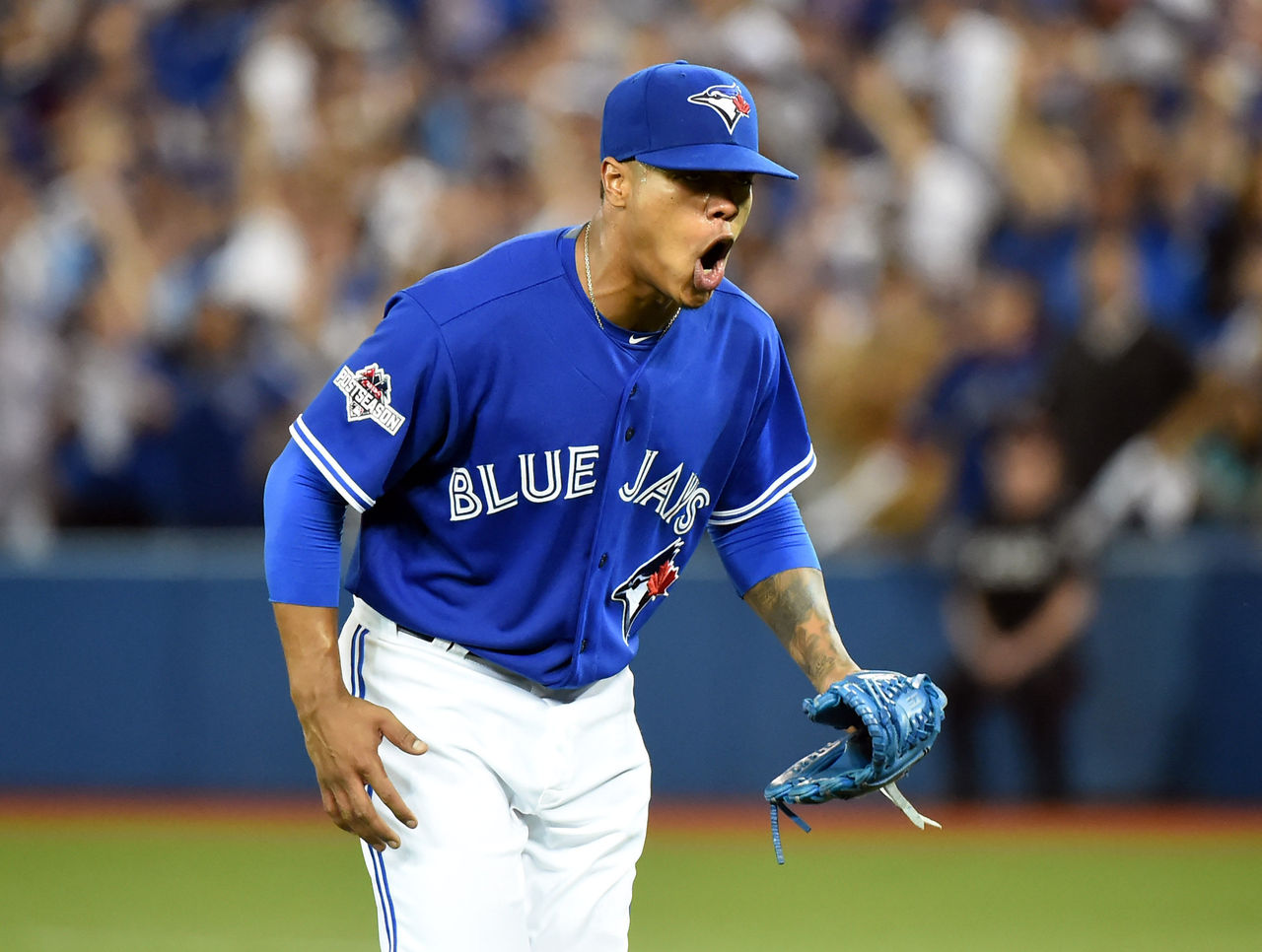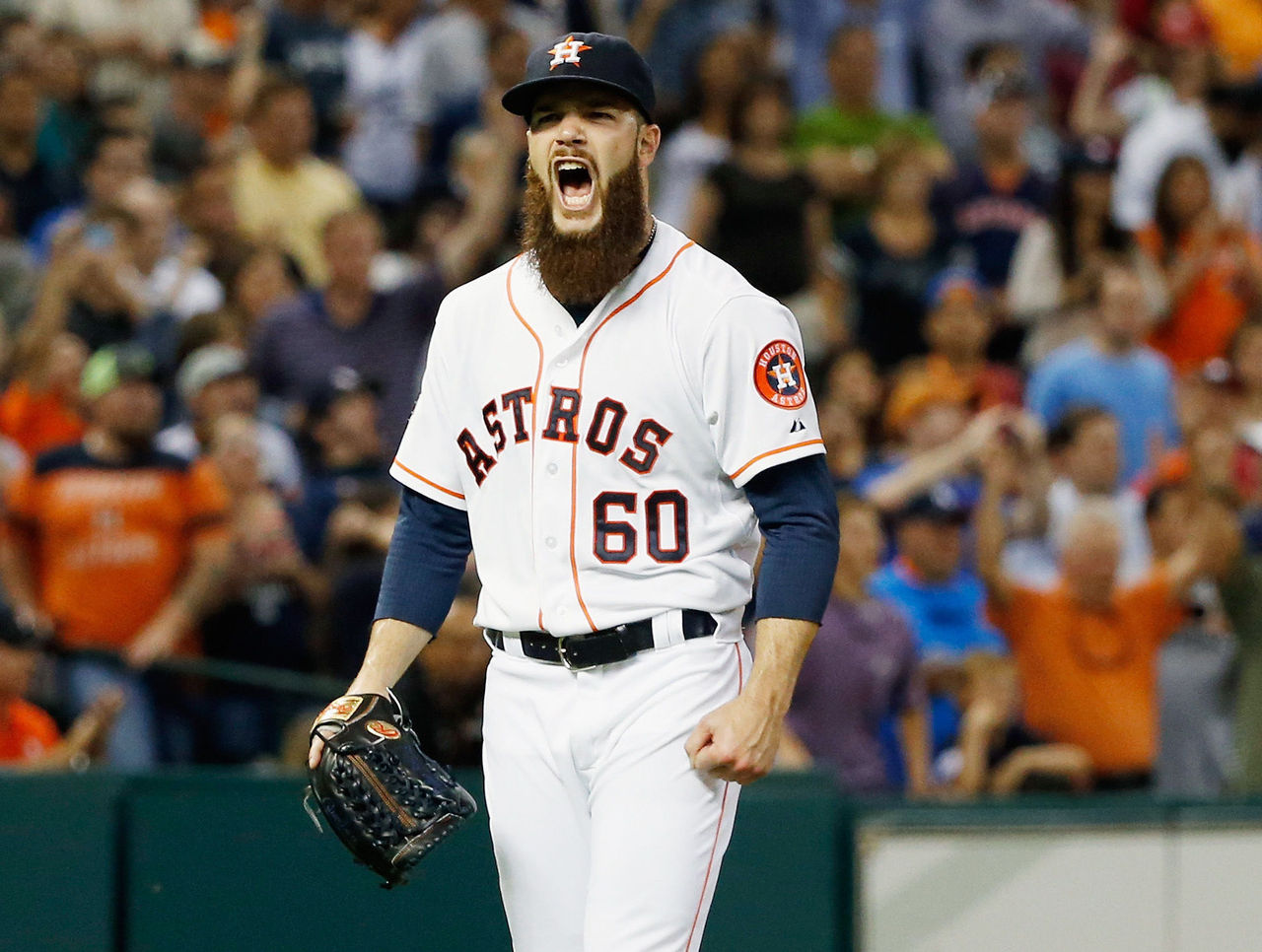Basic MLB DFS Strategy: Choosing the Best Pitching Options
Good pitching is at the heart of any successful daily fantasy baseball roster - but making the right selections can be tricky.
It may seem sensible to peruse the highest-salaried pitchers, select one (or two, depending on your game of choice) and try to put together a batting lineup with whatever money is left. But if your high-priced starter gets lit up, it won’t matter what the rest of your lineup looks like.
Choosing the right pitchers requires careful consideration and research. Starter performance is by far the most significant development in DFS - particularly in one-pitcher game formats - but is also the most projectable; good pitchers are good more often than not, while even the most prolific hitters will go through 1-for-20 slumps in a given week.
DFS players digging into the pitcher list should always consider these factors:

Strikeout rate: Nothing increases a pitcher’s value more than his ability to strike guys out. Always take a long look at a pitcher’s strikeout rate, and favor pitchers who rack up the Ks. Strikeout pitchers don’t necessarily have to have their A-game in order to return value, which gives them a much higher floor than non-strikeout pitchers.
Home/road splits: The majority of pitchers fare better at home than on the road, making the distinction an important one. While you shouldn’t necessarily ignore any pitcher taking the mound away from home, it might be worth considering the home/road factor when deciding between similarly priced or skilled hurlers.
Lefty/righty splits: DFS participants should consider how a pitcher fares against left-handed and right-handed hitters. As a general rule, right-handed pitchers are tougher on righty hitters, while southpaws are more proficient against lefty hitters. So the more “stacked” a lineup is on one side of the plate, the larger the advantage - or disadvantage - for the pitcher.
Quality of opponent: This one is as simple as it gets. The more formidable the opponent, the tougher it will be for a pitcher to return value. That said, lineups change from game to game depending on rest and injuries, among other factors. Make sure you know as much as possible about a team’s projected batting lineup before committing to a pitcher.
Park factors: Not all parks are created equal; stadiums like Petco Park and Tropicana Field have traditionally suppressed offense, while Coors Field has long been viewed as a hitter’s fantasy. Again, park factors shouldn’t be the first thing you consider when choosing a pitcher, but they can help determine the wiser choice between two close candidates.
Here are some additional tips to help you navigate the pitcher pool for tournament games:

Beware the alpha dog: The most expensive pitcher of the night almost never represents the best value at the position - and how could he? That pitcher could be worth as much as 40 percent of your total roster budget - and if he tanks, your entire team tanks with him. Your chances of finding better value elsewhere is a near-lock - so do that instead.
Always consider a bottom-five option: Significant value can be mined from the lower end of the starting pitcher salary list. Finding a great roster option obviously becomes much more of a crapshoot in this case, but unearthing a gem with a rock-bottom salary allows you to allocate much more of your total budget to constructing a powerhouse batting lineup.
Avoid pitcher-batter overlap: If you decide to roster a few hitters from one team, it makes sense to stay away from the pitcher that will be facing those guys. GPP formats reward players that get the most out of their respective rosters - and you simply can’t do that by selecting pitchers who will line up against hitters you have rostered.
Deciding on pitchers in cash-game formats requires a different strategy:

Consider the alpha dog: There may only be a handful of pitchers who consistently return good value despite a sky-high price tag, but in cash games, they’re worth the pick. The goal is to minimize risk - so even though Clayton Kershaw will often cost a significant portion of your budget, the narrow variance and super-high floor he provides can make a big difference.
Load up in two-pitcher formats: Pitchers represent the best source of points in any format - so cash-game players should prioritize landing two good hurlers in two-pitcher games. As discussed earlier, you should target high-strikeout pitchers facing weaker lineups, with preferences given to home-field advantage and good lefty/righty matchups.
Don’t chase the win: While it’s critical for GPP players to lock up pitchers who will earn those sweet victory points, that isn’t necessarily the case in cash-game formats. Great pitchers who rack up strikeouts and limit runs are still supremely valuable even if they don’t record the win. Seek out pitchers in good situations, but don’t simply chase wins.